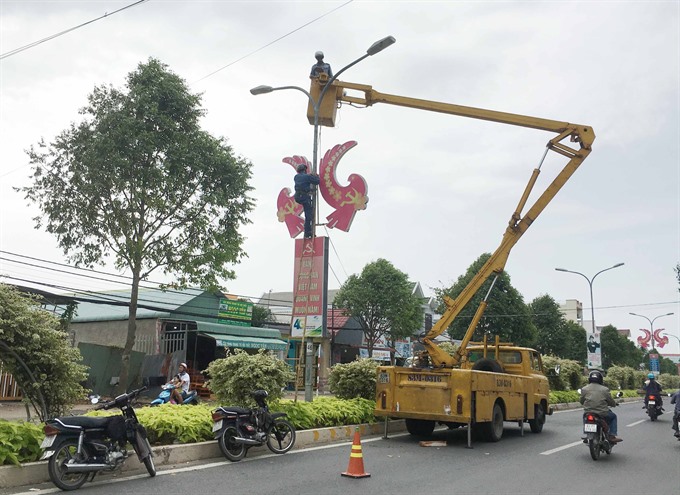 Society
Society

Provinces in the Cửu Long (Mekong) Delta have been advised to seek funds from the private sector to invest in energy-saving lighting and ensure sustainable lighting for its cities and provinces.
 |
| The Mekong Delta city of Sóc Trăng is implementing a project to upgrade lighting systems on ten major streets. — VNA/VNS Photo Hoài Thu |
HCM CITY — Provinces in the Cửu Long (Mekong) Delta have been advised to seek funds from the private sector to invest in energy-saving lighting and ensure sustainable lighting for its cities and provinces.
Speaking at a meeting late last week in Cần Thơ City, Lâm Hữu Tùng, vice president of the Việt Nam Lighting Association, said that provinces in the area had developed urban development master plans without mentioning urban lighting.
While some provincial master plans have noted the need for energy-saving lights, it was only for short-term use.
Investment in lighting systems has come only from the State budget.
Tùng attributed the lack of private funds to certain challenges posed by State policies, which make it unappealing to seek private funds.
However, existing urban lighting systems are using outdated technologies and wasting a great deal of electricity.
The number of energy-efficient LED light bulbs active in the region is only 30,800, while the number of other power-consuming bulbs is 152,800.
Trần Đình Bắc, the lighting association’s vice president and general secretary, said that urban lighting systems in the region should improve efficiency and quality through technological innovation and renewable energy.
He said the State should issue proper policies in the urban lighting sector by calling for investment in new and better lighting systems.
Scientific research and use of advanced technologies are both needed to save power.
For outdated lighting systems, there should be better solutions than selling, auctioning or transferring the systems from one place to another, as is still done today, according to Bắc.
Investors, however, are concerned about how to convert power-consuming bulbs into energy-efficient LEDs.
Since each investment option has advantages and disadvantages in terms of technology and capital, it is important to consult experts, who have urged the creation of an urban lighting database in the delta’s cities and provinces.
The creation of the database, however, is currently facing challenges because public lighting systems in cities, districts and townships are managed by multiple units.
According to 2018 statistics from the Mekong Delta lighting agency, the use of high-consumption lights in the region accounted for 63 per cent, compact lights 21 per cent, fluorescent lights 12 per cent, and LEDs only 4 per cent.
LED technology has outstanding luminescence efficiency, energy-saving efficiency and longevity, experts have said. — VNS